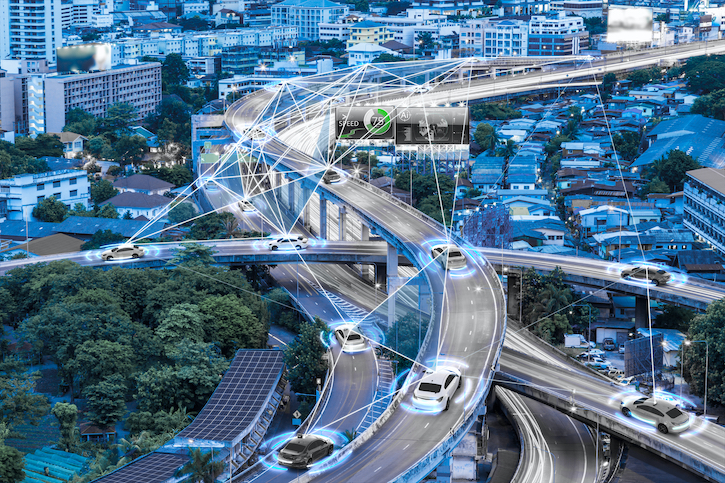Automotive and Transportation at W3C

Transforming Transportation
Shared data associated with transportation has great potential for improving the passenger experience, with opportunities to offer enhanced information, entertainment, efficiency, maintenance, safety, and convenience.
Several technology trends are driving a significant increase in the ability to generate and share a wide range of relevant information. Parallel advances in sensors, communications, cloud and data analytics infrastructure, geophysical mapping, machine learning, mobile devices, user interfaces and related areas have created a rich foundation that can offer tremendous opportunity for creating value.
This potential is hindered from lack of interoperability. The transportation ecosystem can benefit by building a Web of Data to unleash this potential.
As the first W3C initiative in this space, the Automotive Working Group is designed to address the need for standards in a connected vehicle ecosystem.
By specifying common data models and incorporating existing and emerging Web standards, we can accelerate the market for next generation applications. The scope might reside solely within or across vehicles, or extend across other modes of transportation and related services.
The Changing Landscape
The automotive industry is transforming towards an environment that depends heavily on the data that underlies the essential performance and driving experience of a vehicle.
Automobiles are increasingly becoming sources of rich information for in-vehicle, cross-vehicle and cloud based applications that will improve performance, safety, efficiency, and entertainment. These applications may be designed for individual vehicles or address a wide range of them. They may also be part of a broader ecosystem that, for example, might incorporate other transportation modes, address general public safety issues and SmartCity (v2i) interactions.
Example application use cases include:
- System monitoring and optimization
- In-vehicle infotainment
- Predictive maintenance
- Route and trip planning
- Road and infrastructure condition monitoring
- Passenger and Public safety
- Traffic management and smart cities
- Ride sharing and multi-modal mobility
- Fleet management
- Data-driven insurance
Today’s vehicular data involves a confusing array of formats and interfaces that differ by auto manufacturer. Application vendors are deterred by the cost and challenge of developing and supporting multiple proprietary interfaces to address the necessary range of vehicles.
Automotive Standards Effort
In order to accelerate applications in vehicle environments, W3C launched the Automotive Working Group. The team completed an initial specification and is actively working on the next generation.
It starts with the data! Shared information relies most fundamentally on a common description of the underlying data itself. To that end, the W3C Automotive working group is specifying a common data model for vehicle signals.
More specifically, the existing vehicle data model and ontology built on top of it, enable exchanging valuable and useful information consistently across the industry.
- VSS: Data model for in-vehicle applications
- VSSo (Vehicle Signal Specification Ontology)
The model is extensible and leveraging work from the W3C Web of Things been used to represent vehicles as things in IoT.
The Automotive Working Group includes a parallel business group incubator to drive discussion on the most relevant applications and business models that incorporate the standards.
Leveraging Related Industry Efforts
The Automotive Working Group is coordinating with other W3C standards groups and related industry standards bodies, including ISO, Genivi, and others to ensure we leverage one another’s efforts and minimize overlap.
Related W3C standards efforts include:
Why work with W3C?
The World Wide Web is the most interoperable system available for application developers. As applications evolve from desktops to devices, developers can leverage the benefits of a Web-based environment.
- Familiar and widely-used open standards minimize development cost, speed up time-to-market, and simplify support.
- The WWW is a decentralized, neutral platform, designed to be royalty-free.
- Vendors can leverage a large and mature Web developer community.
With active participation from the automotive industry, W3C is working to bring drivers and passengers a rich Web experience.
Shape the Web as a W3C Member
For over twenty-five years, W3C Members have played a significant role in shaping the Web. Contact W3C to learn more about the benefits of W3C Membership.
